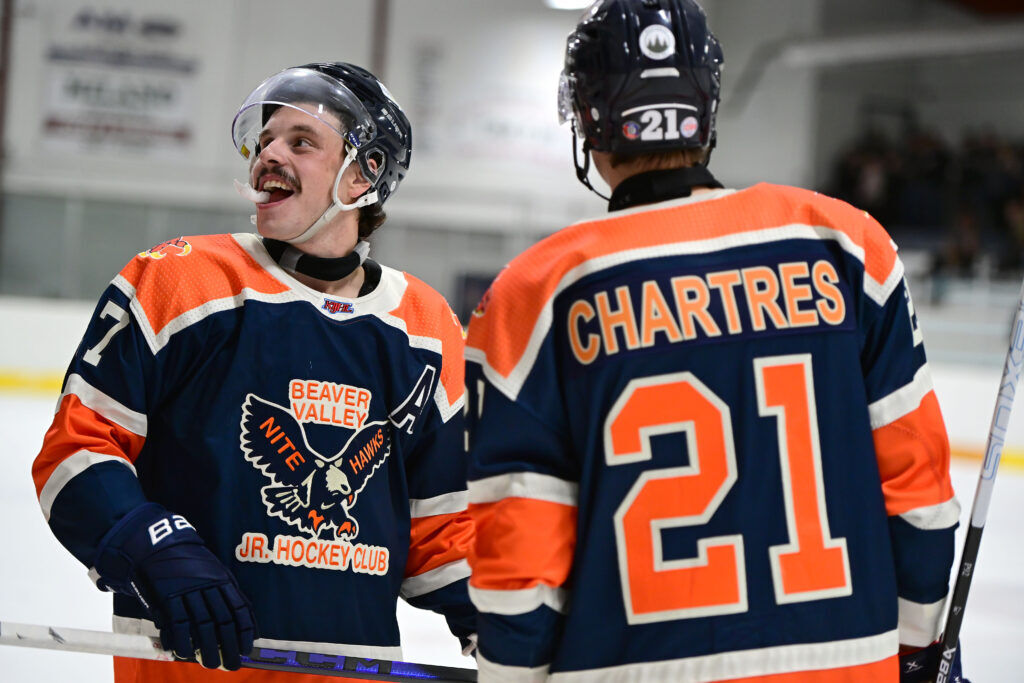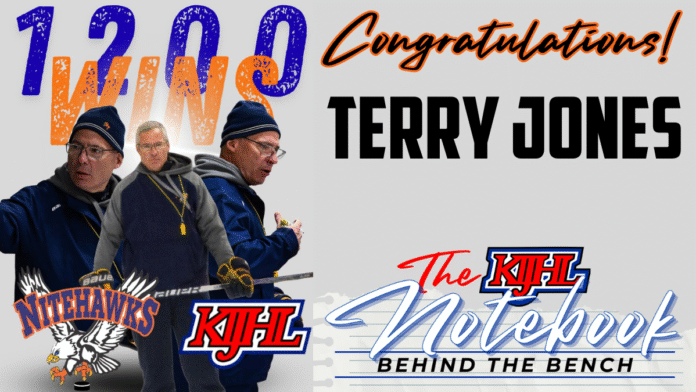Terry Jones jokes that reaching 1,200 career wins—920 in the regular season and 280 in the playoffs — just means he’s been coaching in the Kootenay International Junior Hockey League “a long, long time.”
He’s quick to credit the players, coaching staff, and executives who helped him reach the milestone as a head coach, assistant coach and manager in his 30th year.
“We’ve had a lot of success, so it’s been a great run,” says Jones, who won the league championship and Cyclone Taylor Cup in his very first season.
The newly retired educator coaches because, “I really like the challenge of building a team. I enjoy seeing all the individual players come in, watching them grow from young men into adults.”
Now, in retirement, he enjoys morning skates, skill sessions, conversations, and extra video work with players.
“For us, every player is on his own journey. It’s about figuring out each player’s strengths and weaknesses, what they can improve on daily,” Jones explains. “Off the ice, we focus on routines — getting into the gym, taking courses, volunteering. We want each guy to lead a productive day. On the ice, it’s individualized. Some need to work on skating, others shooting. We look at speed and agility coming out of corners, walking the line for defencemen — things that make them better players.”
Morning skill sessions are easy going.
“We focus on the individual. For a winger, for example, receiving a puck off the wall, getting to the middle, getting a quick shot on net. It’s a repetition of what happens on the ice every game,” says Jones, an eight-time KIJHL champion and four-time provincial champion. “We’re also bringing in Danny Holland, a former player who runs an academy in Boston, to work with our guys on shooting. He’s a great asset. And we have a power-skating coach coming as well. ”
Retirement also means more time for family. Jones’ son, Connor, an assistant coach at Princeton University, brought his wife and two sons to visit while he scouted during the BCHL Showcase. Jones took his three-year-old grandson golfing with a friend — letting him “drive” the golf cart, once the morning frost lifted.
The Nitehawks’ Appeal
When asked why players choose Beaver Valley, Jones laughs. He says recruiting is tough, with so many good KIJHL programs competing for the same talent.
“Sometimes we win, sometimes we lose,” says Jones. “When players get here, they see what we call ‘family.’ Our community is small, authentic, and supportive. It’s beautiful here, and we have high standards. We’re looking for kids who are comfortable in a smaller place, enjoy the outdoors, and appreciate the family nature of our program. You hope that players are looking for something that might be a little bit different. That’s what we’ve built here, and it’s working.”
“We’re trying to find most kids who are comfortable in a smaller place and like the outdoors and like the kind of family nature of our program,” he continues. “I feel like that’s kind of what we’ve tried to develop here and it’s working so far.”
A Throwback Third Jersey
The Nitehawks’ third jersey is a nod to their original logo, used from 1981 to 1984.

“We decided to do the retro jersey to recognize those who worked so hard to start this team,” says Piccolo. “We do have an honour roll banner in the arena with their names.”






